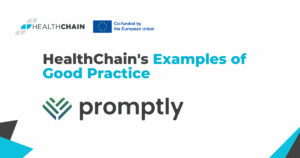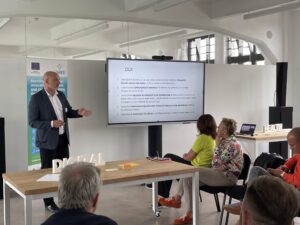Bridging the Gap in Heart Failure Care
Heart failure poses a significant challenge to healthcare systems worldwide. Effective management requires continuous monitoring and proactive interventions to improve patient outcomes, reduce hospital readmissions, and empower patients in their self-care. To address this, a remote patient monitoring pilot was conducted in Croatia. This pilot aimed to test the feasibility and effectiveness of a digital health solution for heart failure patients. The results indicate a positive impact on patient care and offer valuable insights for future implementation.
KBCRI and Verso Altima Group Collaboration
The pilot was a collaborative effort between the Clinical Hospital Center Rijeka (KBCRI), acting as the challenger, and the Verso Altima Group, serving as the solver. The project was structured into three distinct phases:
Design Phase (January – March 2023): This initial phase focused on defining the pilot scope, requirements, and solution design.
Development Phase (April 2023 – March 2024): In the second phase the remote patient monitoring solution was developed and prepared for implementation. During this phase, the project model enabled the project team to gain insights from other pilot projects and best practices across different regions, enriching the development and implementation process.
Pilot Phase (April 2024 – January 2025): This phase involved the actual implementation and testing of the solution with heart failure patients.
The solution utilized a medical-grade smartwatch to measure vital signs and detect AF (Atrial Fibrillation) in patients recovering from heart failure after hospitalization. This technology enabled continuous tracking of key health parameters, supporting timely medical interventions when needed.
Pilot Execution and Key Results
The pilot phase spanned nine months, with the first participant enrolled in April 2024 and the last in January 2025. Key results from the pilot include:
Participants:
- Monitored Group: 25 patients (6 women, 19 men), average age 63 years. The average duration of monitoring per patient was 26 days.
- Control Group: 43 patients (15 women, 28 men), average age 70 years.
Outcomes:
- Monitored Group: 0 deaths, 0 rehospitalizations.
- Control Group: 4 deaths (9%), 7 rehospitalizations (16%).
These results demonstrate the effectiveness of the remote patient monitoring system in reducing mortality and rehospitalization rates, which can lead to significant cost savings in the management of complex heart failure cases.
Patient Satisfaction and Challenges
Patient satisfaction with the remote monitoring was mixed. Many participants were willing to be monitored digitally and appreciated the ability of their cardiologists to track their biological parameters. They also reported feeling a greater sense of security. However, challenges related to device pairing, smartphone compatibility, and data transmission led to some participants withdrawing from the pilot.
Lessons Learned
The pilot confirmed the feasibility of the remote patient monitoring system developed and tested by Verso Altima Group. The core functionality of the system — remote recording of the cardiogram and detecting AF (Atrial Fibrillation)—performed as expected throughout the pilot phase. This validated the effectiveness of the technology in providing real-time monitoring and insights for both patients and healthcare providers.
From a product perspective, one of the key challenges encountered was supporting patients in pairing the smartwatch device with their smartphones. This was particularly evident in the age group included in the pilot, where digital literacy levels varied, and additional assistance was often required. To address this, IT support was provided throughout the pilot, ensuring users could successfully connect and transmit data. This experience highlighted the need for further simplifications in user onboarding and device connectivity processes.
Future Plans: Scaling the Digital Health Solution
Feedback from the hospital staff was invaluable in identifying areas for product improvement. Issues such as device pairing difficulties and data transmission challenges provided critical insights that will inform future refinements. Based on this feedback, we plan to continue product development, focusing on enhancing the user experience and minimizing technical barriers for patients.
From a business perspective, moving forward, we aim to broaden the target market to include a younger demographic. Given that younger users are generally more proficient with smartphones and smart devices, shifting focus to this segment could enhance adoption rates and reduce the need for intensive user support. Consequently, our future sales strategy will prioritize outreach to this demographic, ensuring the solution reaches a user base that can fully leverage its benefits with minimal onboarding difficulties.
Overview of the pilot from Dr. Teodora Zaninović Jurjević, MD, PhD (KBCRI)
Disclaimer: HealthChain project is funded by the European Union. Views and opinions expressed are, however, those of the author(s) only and do not necessarily reflect those of the European Union or European Innovation Council and SMEs Executive Agency (EISMEA). Neither the European Union nor the granting authority can be held responsible for them.








